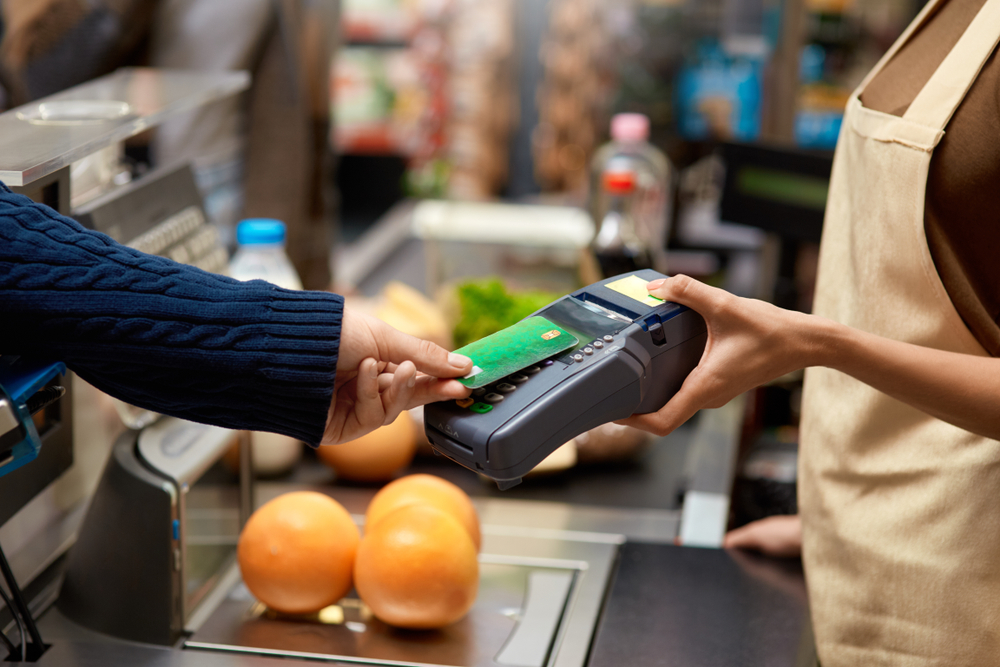With inflation at a 40-year high and households facing the tightest income squeeze in over 50 years, consumers are, understandably, cutting corners to cut costs.
But it isn’t just shoppers that have been feeling the pinch with the UK’s biggest supermarkets noticing a change in customer behaviour in response to rising prices.
In our latest blog, we explain how the cost of living crisis is changing customer behaviour and how you can cut the cost of your next weekly food shop ahead of further price rises.
Setting spending limits
Some shoppers are setting spending limits at tills and petrol pumps and asking cashiers to stop scanning when their total hits £30, according to Asda chairman Lord Stuart Rose.
“What we’re seeing is a massive change in behaviour” he said. “People are trading back. They are worried about spending. They’ve got a limit that they’ve set out, too. They say £30 is one limit…and if they get to more than £30 then that’s it, stop. It’s the same with petrol.”
The supermarket boss also urged ministers to do more to tackle the cost of living crisis as the inflation rate creeps towards double figures and shoppers struggle to get as much bang for their buck.
Buying fewer items
With most people’s budgets stretched to their limits, customers are scaling back their spending and only splurging on basic necessities, like food and toiletries.
From February 28 to May 28 this year, for example, Tesco – which is the UK’s biggest supermarket – recorded a 1.5% drop in sales compared to the same period last year when the country was in lockdown.
CEO, Ken Murphy, said that whilst it was difficult to compare the impact of last year’s lockdown to this year’s cost of living crisis, he has noticed “some early indications of changing customer behaviour as a result of the inflationary environment”.
Buying in bulk
By buying in bulk, you can stock up on essential items and cut costs with prices almost always cheaper per individual unit.
But there are a few rules you must follow if you are looking to make some serious savings, such as only buying items you consume in large quantities and remembering to check the price per unit to avoid spending more than you budgeted for.
The best items to buy in bulk are cleaning products, household supplies, and kitchen cupboard staples with pasta lasting up to two years in an airtight container and white rice lasting up to five years at room temperature.
Choosing own-brand items
To tackle the cost of living crisis, UK supermarkets are encouraging shoppers to choose own-brand items over big-name brands.
But with Aldi and Lidl stocking thousands of own-brand items designed to mimic big-name brands, switching to a budget supermarket can lead to further super savings.
When it comes to own-brand swaps, Aldi shoppers can save over £99 a year by swapping Innocent Smooth Orange Juice for Aldi’s The Juice Company Smooth Orange Juice and over £50 a year by swapping Kellogg’s Crunchy Nut Cornflakes for Aldi’s Harvest Morn Honey Nut Crunchy Cornflakes.
Signing up for loyalty programmes
42% of shoppers have signed up for loyalty programmes since the cost of living crisis took hold earlier this year and 30% are planning to do so if prices continue to rise, according to market research from eWallet and Swapi.
The same data also revealed that 53% of shoppers collect the most loyalty points during their weekly food shop and, amongst this group, 74% have signed up for loyalty programmes to try to slash the price of their weekly food bill.
The Tesco Clubcard, for example, is one of the oldest and most popular loyalty programmes in the UK. It turns points into vouchers and is completely free to join so you can save on food and fuel and be rewarded every time you shop.
Looking for reduced items
32% of customers are looking for reduced items or yellow sticker items approaching their use-by date, according to the latest figures from Ipsos.
It can be difficult to master the art of yellow sticker shopping with rules differing from store to store but when done right, you can bag a last-minute bargain with some items reduced by as much as 90% on or just before their use-by date.
Food waste apps like Too Good To Go, Karma, and Olio have also become popular in recent years. They connect users with local restaurants, supermarkets, and neighbours looking to get rid of surplus food for free of for a small fee and can be a quick and easy way to save money (and the planet).









